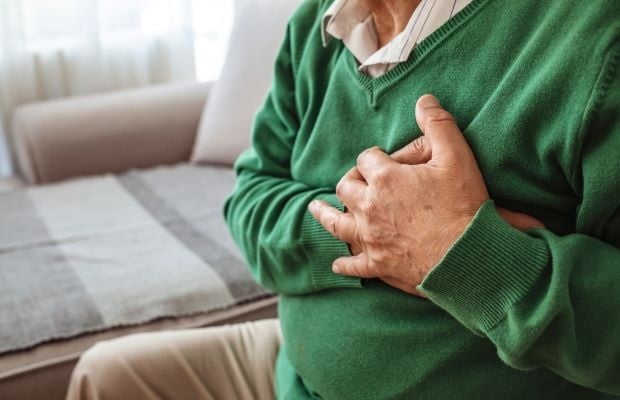What's on this page
Do Covid-19 vaccines cause myocarditis?
There's a link between mRNA Covid-19 vaccines and an increased risk of myocarditis and pericarditis.
Myocarditis is inflammation of the heart muscle and pericarditis is inflammation of the lining around the heart.
While reports of myocarditis following any Covid-19 vaccine are rare, cases are more common in young males under the age of 25, according to the UK’s Green Book on vaccines.
The risk appears to be higher after a second dose of the vaccine, compared with the first dose or booster doses.
Covid-19 vaccines are currently only being offered to people more at risk of getting seriously ill from Covid-19 as part of the NHS seasonal vaccine programmes.
How rare are these side effects?
The risk of myocarditis and pericarditis after a Covid-19 vaccine is very low.
Patient leaflets for the 2 mRNA Covid-19 vaccines used in the NHS list how frequently people experience myocarditis or pericarditis after being vaccinated as:
It is not possible to estimate how frequently people experience myocarditis or pericarditis after Novavax’s Nuvaxovid vaccine, which is not an mRNA vaccine, as it has not been widely used in the UK.
Can Covid-19 cause myocarditis?
Research shows that Covid-19 itself is much more likely to cause myocarditis than a vaccine in most people.
People who are vaccinated against Covid-19 also have a much lower risk of getting other serious heart complications caused by the virus, including heart attack and stroke.
That’s why the Medicines and Healthcare products Regulatory Agency says the benefits of having the Covid-19 vaccine far outweigh the risks of not getting it for most people.
Get support with your health and wellbeing
Sign up to our fortnightly Heart Matters newsletter to receive tips on coping with difficult emotions, looking after your health and living well. Joining is free and takes 2 minutes.
I’d like to sign-up
What is myocarditis?
Myocarditis is inflammation of the heart muscle.
There are many different causes of myocarditis, so not all cases that happen after vaccination are because of the vaccine.
Myocarditis is commonly caused by viruses, such as flu or Covid-19. It can also happen in response to bacterial infections, such as a sore throat or chest infection.
Myocarditis can be mild or serious. Most people who get acute myocarditis make a good recovery and do not have long-term problems.
But in serious cases it can lead to scarring of the heart tissue, which can be seen on a cardiac MRI scan.
In a small number of cases this scarring may cause a life-threatening heart rhythm disturbance (arrhythmia) later in life, and those affected are likely to be offered long-term follow-up and monitoring.
In some people, this scarring may also make it more difficult for their heart to pump blood around their body properly, which is known as heart failure.
What is pericarditis?
Pericarditis is inflammation of the lining around the heart, whereas myocarditis is inflammation of the heart muscle.
Pericarditis and myocarditis often happen together and can have similar symptoms.
Most people recover within a few weeks, but for others it can take months.
What are myocarditis symptoms?
Symptoms of myocarditis linked to the Covid-19 vaccine generally appear within a week of vaccination.
You should seek medical help if you get any of these symptoms:
- chest pain or discomfort, or a feeling of tightness in the chest
- shortness of breath, either at rest or when active, or in certain positions, such as lying down
- palpitations (like your heart is fluttering, racing, or pounding).
They may not mean you have myocarditis or pericarditis, but they are signs you should get medical help, whether you've recently been vaccinated or not.
What to read next...


